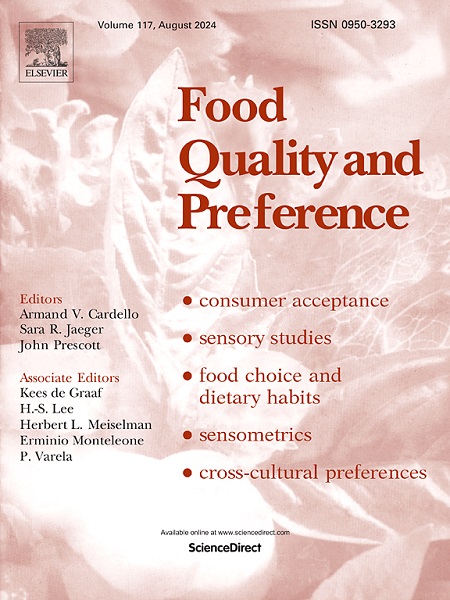The heterogeneity of consumer preference for blockchain-based food traceability: The role of governmental trust and information-seeking behaviour
IF 4.9
1区 农林科学
Q1 FOOD SCIENCE & TECHNOLOGY
引用次数: 0
Abstract
Recent incidents of food fraud and growing concerns about sustainability in food production have led to increased consumer preference for food traceability. Governments, responsible for enforcing food traceability regulations and overseeing food systems, play a crucial role in this context. Consequently, trust in government could significantly influence consumer behaviour and their valuation of food traceability systems. Blockchain (BC) technology, recently implemented in food traceability, has gained popularity due to its potential to create a “trustless” trust environment. This study aims to understand how consumers with varying levels of trust in the government value BC-based traceability systems. An online choice experiment (n = 707) focused on Greek feta cheese was conducted to explore this relationship. Four consumer segments were identified, profiled, and labelled as Engaged, Sceptic, Vigilant, and Reliant. The findings reveal that consumers with low trust in government and a high tendency to seek product information place a high value on BC-based food traceability compared to other labelling schemes. Conversely, consumers who trust the government and do not actively seek product information show a preference for the well-known PDO certification over food traceability labels. These results highlight the potential for promoting BC-based traceability among consumers, as a sizeable segment demonstrates interest in such traceable products.
求助全文
约1分钟内获得全文
求助全文
来源期刊

Food Quality and Preference
工程技术-食品科技
CiteScore
10.40
自引率
15.10%
发文量
263
审稿时长
38 days
期刊介绍:
Food Quality and Preference is a journal devoted to sensory, consumer and behavioural research in food and non-food products. It publishes original research, critical reviews, and short communications in sensory and consumer science, and sensometrics. In addition, the journal publishes special invited issues on important timely topics and from relevant conferences. These are aimed at bridging the gap between research and application, bringing together authors and readers in consumer and market research, sensory science, sensometrics and sensory evaluation, nutrition and food choice, as well as food research, product development and sensory quality assurance. Submissions to Food Quality and Preference are limited to papers that include some form of human measurement; papers that are limited to physical/chemical measures or the routine application of sensory, consumer or econometric analysis will not be considered unless they specifically make a novel scientific contribution in line with the journal''s coverage as outlined below.
 求助内容:
求助内容: 应助结果提醒方式:
应助结果提醒方式:


